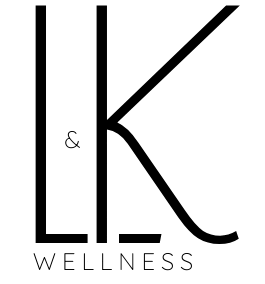Best Foods for Each Phase of Your Menstrual Cycle: A Complete Cycle Syncing Guide

Beyond its biological function, the menstrual cycle holds profound significance, influencing not just physical health but also mental and emotional well-being. In this blog post, we discuss how aspects like diet and exercise play pivotal roles in supporting our well-being throughout the menstrual cycle. By aligning our nutritional intake and physical activity with the changing needs of our bodies, we can harness the power of cycle syncing to optimize our health and vitality.
From the ebbs and flows of hormones to the nuanced shifts in energy levels and mood, each phase offers valuable insights into our bodies and minds. Join us as we embark on a transformative journey towards understanding and honoring the beauty of our cyclical nature and fostering a sense of empowerment and holistic well-being.
Menstrual Phase (Days 1-7):
During the menstrual phase aka the bleeding phase, we should prioritize rest and self-care. Energy levels may be lower, and some women may experience fatigue and discomfort.
Diet: Focus on nourishing, easily digestible foods to support your body during menstruation. Include plenty of iron-rich foods like leafy greens, lean meats, legumes, and fortified cereals to replenish iron lost through menstrual bleeding. Incorporate anti-inflammatory foods like fatty fish (salmon, mackerel), nuts, seeds, and berries to help alleviate menstrual cramps and reduce inflammation.
Exercise: Engage in gentle, low-impact activities such as walking, yoga, or stretching to support circulation and ease menstrual discomfort. Listen to your body and avoid strenuous exercise if you’re feeling fatigued or experiencing discomfort.
Follicular Phase (Days 8-14):
During the follicular phase, estrogen levels gradually increase, leading to higher energy levels and improved mood.
Diet: Focus on a balanced diet rich in whole grains, fruits, vegetables, lean proteins, and healthy fats to support overall health and energy levels. Incorporate foods high in vitamin C (citrus fruits, bell peppers, broccoli) and B vitamins (whole grains, nuts, seeds) to support hormone production and metabolism.
Exercise: Take advantage of increased energy levels by engaging in moderate to high-intensity workouts such as cardio, strength training, or HIIT (High-Intensity Interval Training). Aim for 150 hours per week.
Ovulation (Day 15-17):
Ovulation marks the peak of estrogen production and may be accompanied by a surge in energy levels and libido.
Diet: Focus on nutrient-dense foods to support hormone balance. Include plenty of leafy greens, colorful vegetables, healthy fats (avocado, olive oil), and lean proteins (chicken, fish, tofu). Incorporate foods rich in omega-3 fatty acids (salmon, flaxseeds, chia seeds) to support reproductive health and reduce inflammation.
Exercise: Take advantage of peak energy levels by engaging in challenging workouts or activities you enjoy. Consider trying new activities or exercises to keep things exciting. Remember to listen to your body and avoid overexertion.
Luteal Phase (Days 18-28)
During the luteal phase, progesterone levels increase, which may lead to mood changes, bloating, and fatigue in some women.
Diet: Focus on stabilizing blood sugar levels and supporting mood and energy levels by incorporating complex carbohydrates (whole grains, sweet potatoes, legumes), protein-rich foods (chicken, eggs, Greek yogurt), and healthy fats (avocado, nuts, seeds) into your meals. Limit caffeine and alcohol intake, as they can exacerbate symptoms like anxiety and irritability.
Exercise: Engage in moderate-intensity exercises like walking, cycling, or swimming to support mood and energy levels. Incorporate relaxation techniques such as yoga, Pilates, or deep breathing exercises to reduce stress and promote relaxation. Listen to your body and adjust your workout intensity as needed based on how you’re feeling.
Click here for this free printable cycle syncing graphic

Everybody is different so the days may not be exactly as above but generally in that range. I wish I would have embraced this earlier in life. The benefit of having a healthy lifestyle is immense, listen to your body and adjust your diet and exercise routine based on your energy levels, preferences, and any symptoms you may be experiencing during each phase of your menstrual cycle. Experiment with different foods and activities to find what works best for you and supports your overall well-being. If you have specific health concerns or dietary restrictions, consider consulting with a healthcare provider or registered dietitian for personalized guidance.






